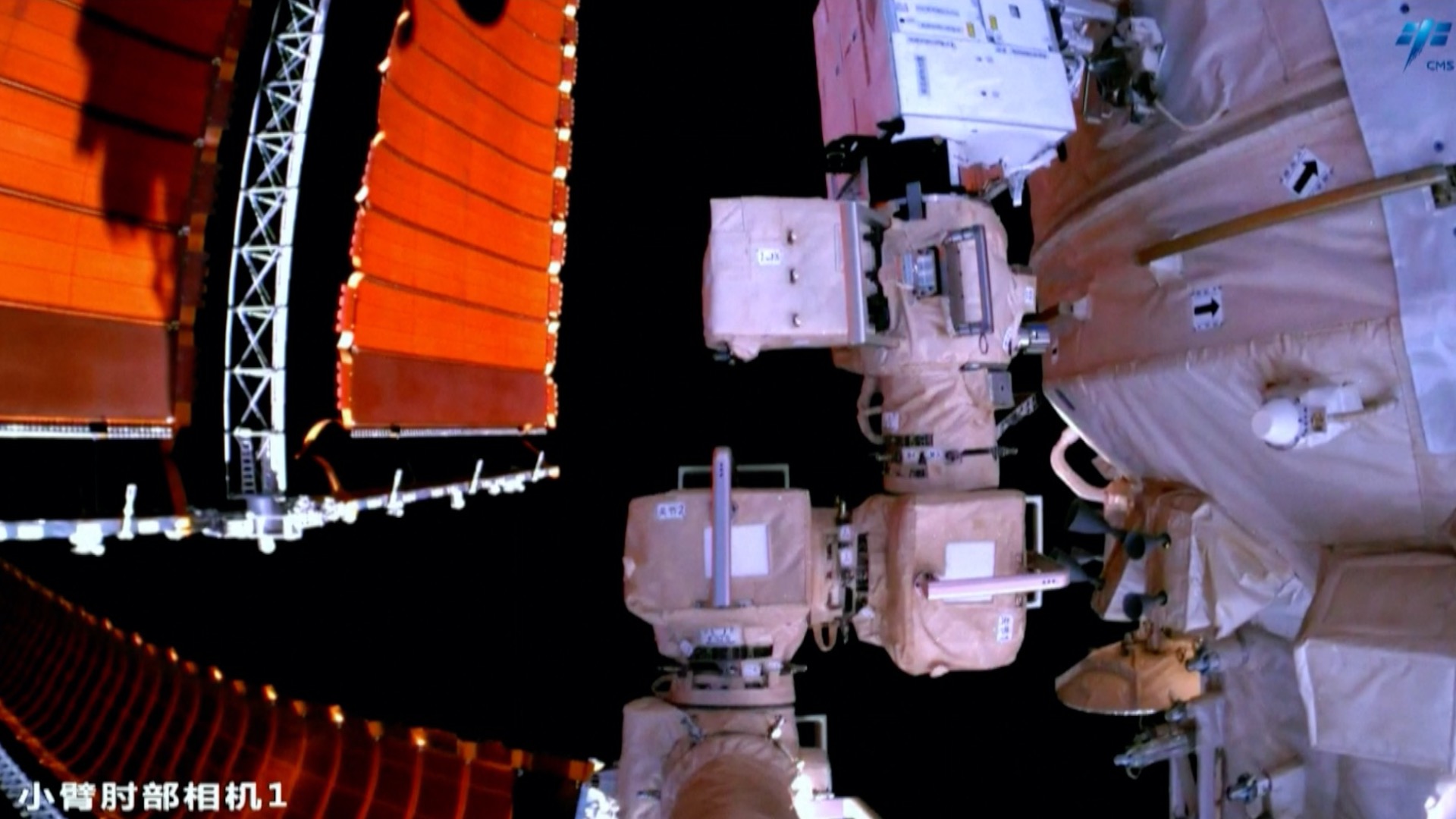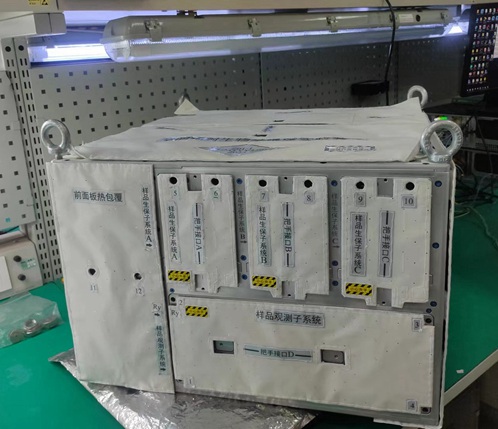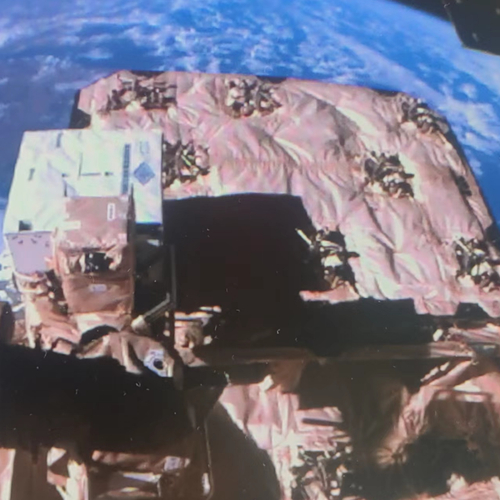01:15

The Shenzhou-16 crew aboard the China Space Station has performed a radiation biological exposure experiment outside the Mengtian lab module for the first time, marking a milestone achievement in radiation biology and space science research, according to the National Space Science Center (NSSC) of the Chinese Academy of Sciences on Tuesday.
The space radiation biological exposure experiment equipment, jointly developed by the NSSC and the Dalian Maritime University, was transferred by a robotic arm from the cargo airlock cabin, and installed at the established platform.

The space radiation biological exposure experiment equipment. /NSSC
The space radiation biological exposure experiment equipment. /NSSC
The equipment is used to study the impact of stressed environments such as cosmic radiation and microgravity on model organisms, the damage and protection from space radiation, the origin and evolution of life, and the development of space radiation mutagenic resources.
It contains 13 sample box units loaded with biological materials, which can be used for in-orbit experiments of biological samples such as plant seeds, microorganisms and small animals. Each sample box unit can independently control the interior temperature, so as to meet the survival needs of different model organisms.
The equipment also has a radiation measurement subsystem to obtain radiation data, based on which researchers plan to build a national database on the correspondence between space radiation parameters and space biological effects.

The experiment equipment installed at the preset platform outside the Mengtian lab module. /NSSC
The experiment equipment installed at the preset platform outside the Mengtian lab module. /NSSC
Conducting research using the equipment is of great significance to China's major space projects, including long-term in-orbit missions of Chinese astronauts and manned moon landing, said the NSSC.
All the engineering parameters of the equipment were normal, with the life protection conditions such as temperature meeting the scientific requirements.
As the only extravehicular radiation biological experiment device at present, the equipment will operate for five years, providing services for multiple scientific experimental projects.